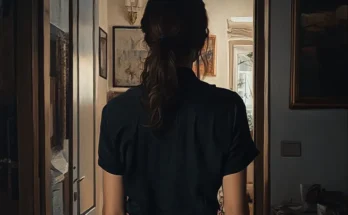Jade called on a Tuesday, panic fizzing through the phone. She’d tried a dozen boutiques and still couldn’t find bridesmaid dresses that worked for her six friends. Amelia—new mom, former seamstress, and Jade’s not-quite-close stepsister—hesitated. Money was tight; the baby fund had already been raided by bills. But Jade promised to cover materials and pay fairly. Amelia said yes.
Three sleepless weeks followed. Between feedings and catnaps, Amelia drafted patterns, pinned hems, and met a carousel of opinions: one bridesmaid wanted a daring neckline, another begged for sleeves, a third demanded a thigh-high slit and built-in support. Amelia adjusted, re-cut, and stitched until her back burned. She spent $400 of the baby’s winter-clothes money on silk, lining, lace, zippers—the good stuff Jade had said she wanted.
When Amelia delivered six custom gowns that fit like they’d stepped off a runway, Jade barely looked up. Payment? Jade smirked. Surely Amelia didn’t expect cash—this was obviously her “wedding gift.” The words landed like ice water: the money, the labor, the nights at the machine—dismissed as a hobby for a mom who “sat at home all day.”
At the reception, guests kept praising the bridesmaids’ dresses. Amelia saw Jade grit her teeth, then brag to a friend that she’d scored “basically free” couture from a gullible relative. Moments later, karma ripped through the room—literally. Jade’s designer gown split open down the back seam minutes before the first dance.
Face streaked with mascara, Jade dragged Amelia into the restroom, begging for rescue. Amelia could have walked away. Instead, she pulled an emergency kit from her purse, braced Jade against the stall, and stitched the dress invisible.
Before the toasts, Jade surprised everyone. She confessed into the microphone that she’d exploited her stepsister, used her baby’s money, and lied about the work. Then she crossed the room with an envelope—reimbursement, plus extra for the baby—and a quiet, trembling apology.
Amelia didn’t need the room’s applause to feel whole. Dignity, she realized, isn’t loud. Sometimes it’s a needle and thread, a steady hand in a harsh light, and the courage to do right until someone else finally does, too.


